Postpartum eating makes a lot of difference in your health as it fastens the healing process after you deliver the baby. The food we eat fuels our bodies for daily activities by strengthening our muscles after delivering a baby. Especially moms who choose to breastfeed need extra nutrition.
Many moms feel the haste to lose the baby weight, but this might compromise a lot of nourishment for moms and their babies. Therefore, choosing the right foods to support postpartum recovery, milk production, rest, and all the other tasks required to get through the day is essential.
Reducing overall carbohydrate intake could be detrimental to your health because carbs give new moms energy to look after the baby, mood regulations, mental health, and more. However, a protein-rich diet cannot be excluded as it fastens the healing process.
Although it is hard for new moms to meal prep a specific diet eating a somewhat balanced diet is important, a blend of everything, such as protein, fruits, vegetables, fiber-rich carbs, oats, eggs, etc. Keeping some postpartum snacks handy can save the day.
Whether you have a vaginal delivery or a C-section delivery, you must eat a healthy and nutritious diet. For C- section moms, internal healing is as important as external healing. Eating healthy would ensure faster recovery – both emotional and physical.
The postpartum diet, especially for breastfeeding moms, has to be nutritious and easy on your digestive tract. Although any scientific research does not back it as yet, it is mostly about moms’ experiences. Breastfeeding moms’ diets could trigger babies’ gas issues, eventually leading to fussy and uncomfortable nights for the first few weeks after birth.
Avoiding specific types of foods certainly does not mean you stop eating everything. Ideally, you should wait for at least six weeks until the baby’s digestive tract strengthens. Gradually resuming your regular diet would tremendously help you and your baby’s overall health and better postpartum experience.
This post may contain affiliate links. Please read our disclaimer for more information.
Healthy Postpartum Diet for C-section Moms
1. Oatmeal
Oatmeal is a very nutritious and healthy food for breakfast. Oats are a good source of carbohydrates and fiber – having the right amount of vitamins, minerals, and antioxidants too. Eating oats in any form, like oatmeal, cookies, or porridge, can be really helpful in the lactation process.
Even a bowl of oatmeal every morning is filling and helps you lose weight. Oats play a vital role in relieving constipation, which is a significant concern after delivery. Pediatricians also recommend breastfeeding moms to include oatmeal in their diet to improve their milk supply.
For breastfeeding moms, oats lactation cookies work great to establish good milk supply during the first several weeks after birth. Also, you can get ready-to-use lactation bites and put it in your hospital bag for a smooth breastfeeding experience.

Read more
41 Basic Breastfeeding tips for new moms.
2. Boiled eggs
Eggs are an exceptionally nutritious source of proteins and essential vitamins. Pediatrics recommend eating boiled eggs that could significantly improve milk supply for a breastfeeding mom. In addition to that, eating two boiled eggs for breakfast daily is beneficial for internal healing after C-section or vaginal delivery.
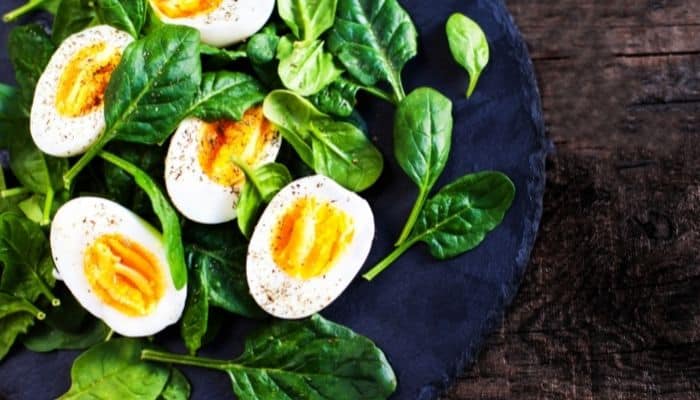
Avocado toast topped with a hard-boiled egg is a healthy meal to start your day. It is easy to make and delicious with a dash of salt and black pepper.
3. Protein-rich Food
Protein-rich meat, chicken, mutton/lamb, beef, or fish are essential for internal and external incision healing, especially after a C-section.
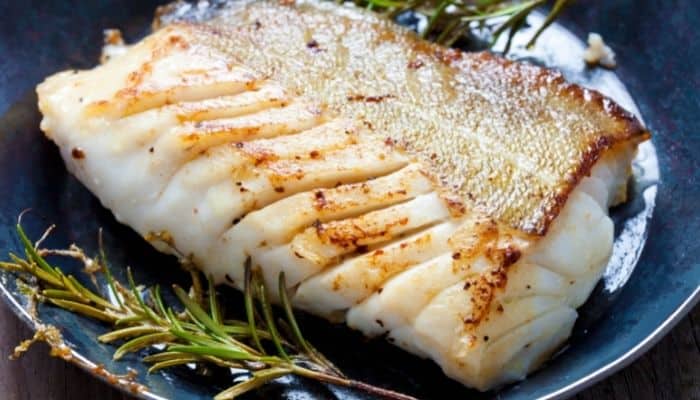
If you are a vegan and breastfeeding mom, you can take protein from quinoa, soy products, beans, and grains.
Related
How to recover faster and heal better after C-section delivery.
4. Iron Rich food | Red Meat and Green leafy vegetables
An iron deficiency can drain your energy levels, making it hard for you to keep up with the demands of a newborn baby.
If you had a C-section or have been anemic throughout your pregnancy, you definitely need iron-rich food or iron supplements.
Red meat and green leafy vegetables like spinach etc. are good sources of iron.
If you prefer vegan food, you should add iron-rich food like spinach and other leafy greens, dried fruits, kidney beans, black beans, tofu, seeds, nuts, soy milk, and fortified breakfast cereals to your diet.
5. Bone Broth | Soup
Bone broth is a healthy appetizer to start your meal. It has all good nutrition, and it is exceptionally hydrating for breastfeeding moms.
You can make bone broth by using any type of organic bone-in meat. Add water and let it cook for a few hours until the meat gets tender. You can add a few cloves of garlic, cumin seeds, salt, and pepper or any other seasoning according to your taste. For meat, you can use organic chicken legs, bone-in mutton or lamb meat to make bone broth.
This should increase your milk supply and improves milk quality. Moreover, it significantly helps with bowel movement and results in getting more regular.

Related
Food that helps increase milk supply for breastfeeding moms.
6. Fruits and Vegetables
Fruits and vegetables are packed with the whole nutrition of essential vitamins and minerals. Eat fruits and green leafy iron-rich vegetables like avocado, apples, bananas, blueberries, oranges, and spinach.
Eating avocado in breakfast is a healthy meal to start your day—mix avocado with salt and pepper. Toast a bread slice of your choice, whole wheat, or any other you like—cover toast with mashed avocado with a boiled or fried egg on top.

Related:
Postpartum Meal ideas and recipes for new moms’ faster recovery.
7. Brown Rice and whole wheat bread
Eating brown rice is a great way to cut on carbs. It will help you lose weight yet keeps you energetic.
Whole wheat bread is a great source of Folic acid. Folic acid helps in a baby’s brain development during pregnancy and even while breastfeeding. Including Folic acid in your everyday diet works as a mood booster. It really helps you stay mentally and emotionally sound.
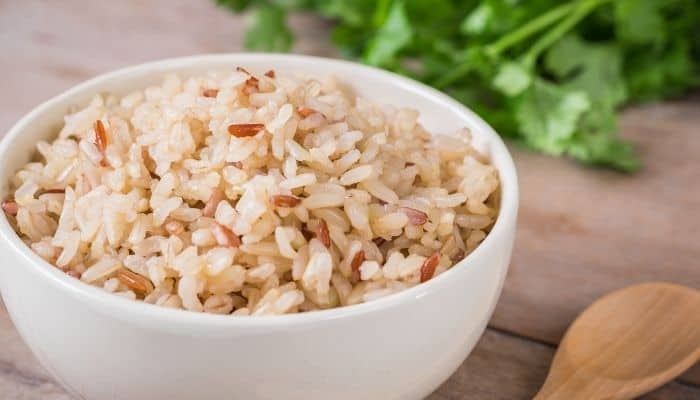
8. Desi Ghee/ Organic Ghee
Instead of cooking in canola oil, you should consume Desi Ghee, especially while breastfeeding. Desi ghee is a form of melted butter and is considered healthier and more nutritious.
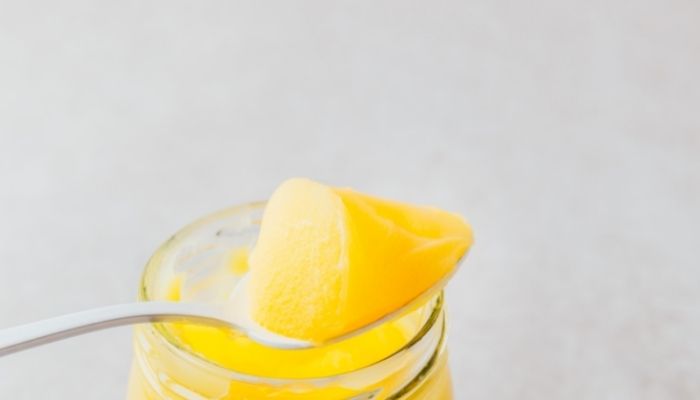
Your body needs good fats, and Desi ghee has way more health benefits if consumed moderately.
8. Water
Water intake is essential. Drink plenty of water to have your milk flow get better that keeps your bowel movement regular. If you feel dehydrated, you are at risk of energy-draining lethargy. To keep your energy levels and milk production up, stay well-hydrated.
Try to cut down on caffeine intake because caffeine can cause irritability in newborns’ sleep patterns.
Buy flavored water with zero sugar for tastier hydration.
9. Milk and Yogurt
Milk and yogurt are rich sources of calcium. as your baby’s bones get strong, the more calcium you need for your bone health. You must intake healthier dairy products like cheese, greek yogurt, and low-fat milk (You can take whole milk if you prefer).
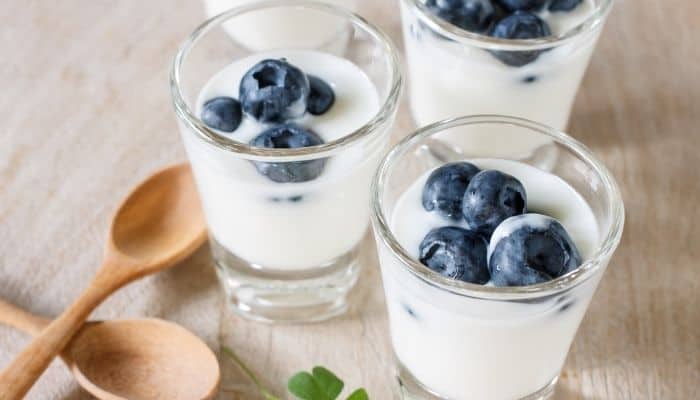
Remember to watch out for any signs of lactose intolerance in newborns.
10. Green tea
Green tea is a great source of antioxidants and helps moms lose weight after birth.
If you want to lose weight and you cannot exercise right after giving birth, you should have this amazing recipe of a very simple, easy-to-make herbal tea. I have lost 40 lbs within 6 months after both C-sections by having just one cup a day.
11. Snacks
Keep healthy snacks at your breastfeeding station or nightstand.
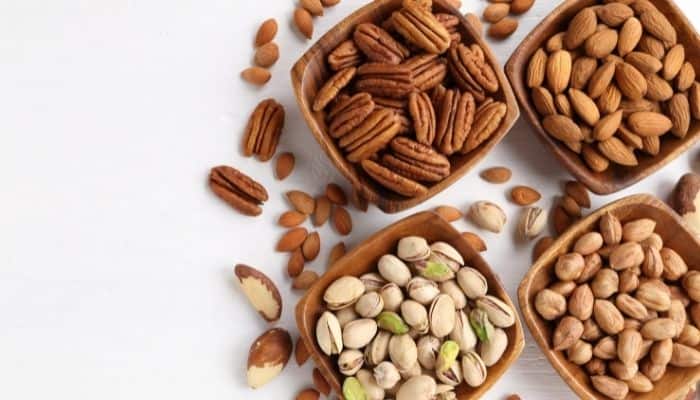
- Dates
- Granola bars
- Figs
- Almonds
- Walnuts
- Raisins (please keep an eye in case of any allergy signs)
12. Supplements /Vitamins
Taking prenatal vitamins is important until you choose to breastfeed. Some essential vitamins can help you with depression or anxiety and the vitamin B complex are one of them. Eat food that’s a rich source of vitamin B.
Calcium and magnesium are essential vitamins for muscle cramping and bone health. Your baby has already been taking his share of nutrition from your body since you conceived, and now when you have delivered a healthy baby, he/she needs food from breastmilk; thus, you have to eat to meet your baby’s food requirements.
Take Vitamin B-rich food because vitamin B helps with moods, anxiety, and depression. In short, it is essential for emotional health as well. Nursing moms need to eat extra protein and vitamin B-12.
Folic acid is one of the mood boosters. It helps positively in emotional as well as mental health.
Breastfeeding moms may want to take breastfeeding supplements for a better supply of breastmilk.
Moreover, try Milk Dust breastmilk and protein powder if you want to lose post-baby weight and don’t want to lose your milk supply. A lot of moms are actually seeing great results while using Milk dust lactation powder for weight loss.
Check out Milk dust protein powder for significant improvement in milk supply and weight loss.
What Foods to avoid during postpartum
1. Vegetables and fruits that cause bloating
After a C-section, eating gassy food could cause severe bloating that becomes extremely painful in your stitches. Although it varies how fast or slow your metabolism is.
Gas issues could also affect your baby’s night sleep negatively because the baby’s tiny stomach is going to adjust with time. So, try to be wise with your food choices.
You might want to avoid eating veggies like cauliflower, kale, broccoli, okra, legumes, chickpeas, etc, for at least a couple of weeks.
2. Fried food or oily food
At this point, try to avoid fried food as It could cause heartburn, discomfort, and bloating in your abdominal area.
Oily food is one of the reasons for gaining weight.
3. Spicy Food
Spicy food may delay the healing process if you have a c-section. It can cause heartburn, acidity, and digestive discomfort. Ideally, you should avoid eating spicy food for at least 2 to 3 weeks postpartum.
Word of caution: Please watch out for any form of allergies from dry fruit, nuts, and dairy products. in rare cases, babies tend to be lactose intolerant too. Please talk to your doctor if you see anything unusual.
Related:
11+ Postpartum Meal Recipes for new moms
How to improve your emotional health with a nutritional diet after giving birth.
40+ breastfeeding tips for new moms.
Struggles of breastfeeding – how to deal with breastfeeding discomforts.
Breastfeed or formula feed – when is it okay to use combination feed for your baby.
Mommy mistakes with a newborn.
Comment below and let me know your suggestions about your favorite postpartum diet.
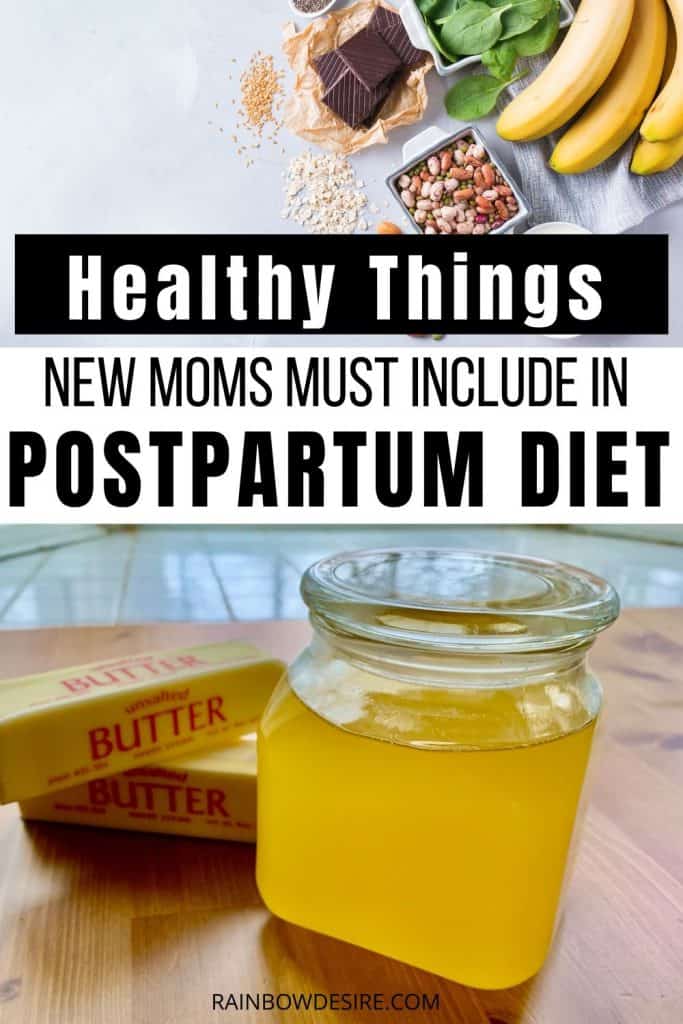

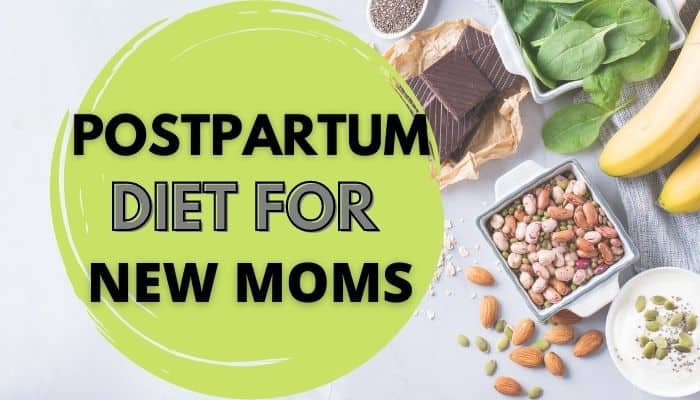
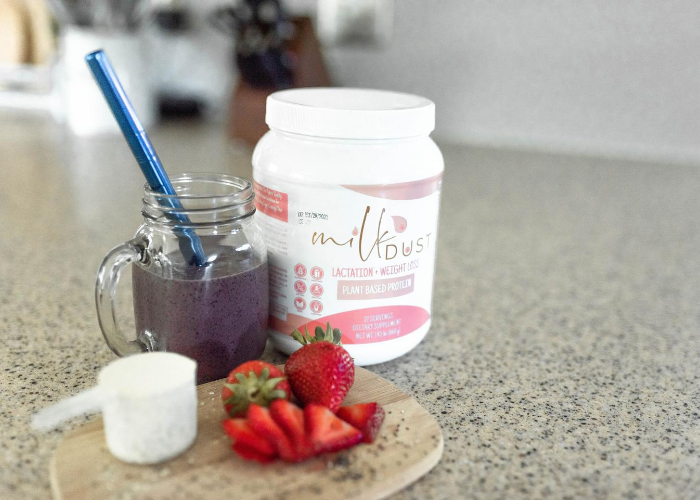
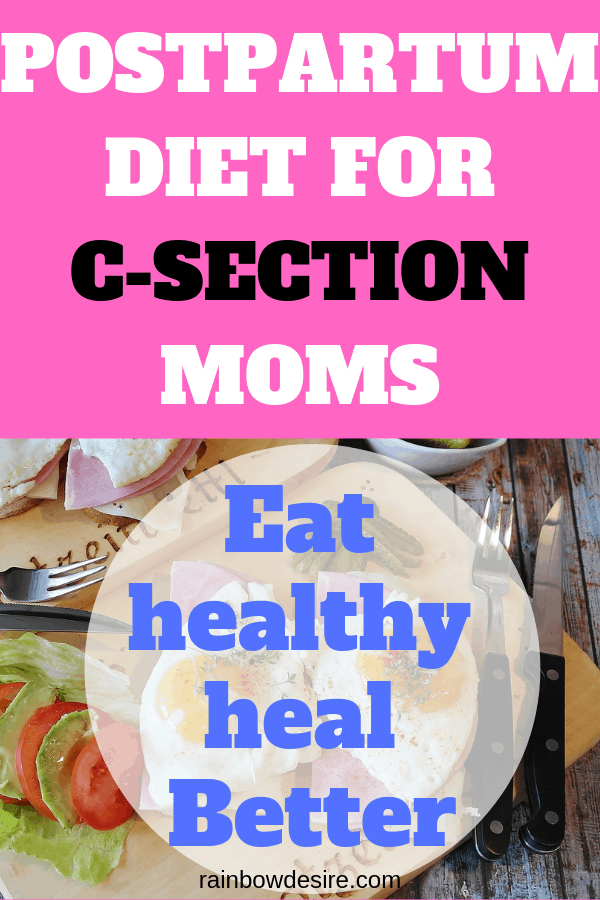
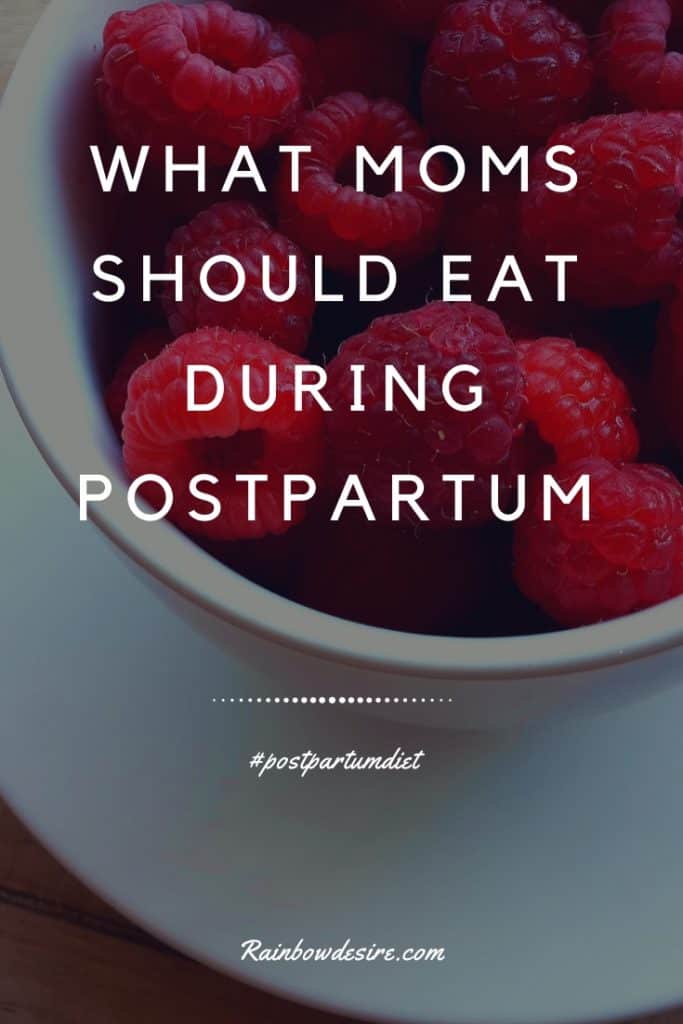

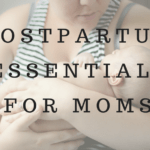
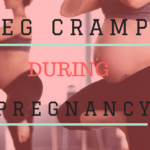

8 thoughts on “Postpartum healthy eating for Moms – why is it important?”